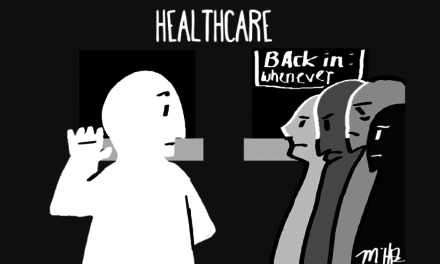All around campus, murmurs of a new space called “The Hatchery” have percolated, but very few can actually tell you what the space is intended for, or even where it’s located. The Hatchery, which is meant to be an on-campus business incubator, is one of the first tangible manifestations of the University’s decorous “One Emory” initiative. However, it’s far from clear what resources or benefits it would actually provide to students to support their ideas.
The Hatchery’s overblown website illustrates the disconnect between Emory’s marketing and reality. The site features sleek pictures of the space and buzzwords such as “collaboration” and “curiosity.” While a shiny space may make for good marketing, how exactly will The Hatchery fulfill its core mission of helping students collaborate to start businesses beyond classrooms?
The Hatchery’s “makerspace” contains board games such as Monopoly and Settlers of Catan. Another room houses a ping-pong table to “facilitate kinetic learning.” The patronizing choices to include these literal playthings were purportedly made to avoid replicating other campus spaces like the Cox Hall Computing Center TechLab, which contains 3D printers and other innovative technology. While avoiding redundancy is important, Emory had an opportune moment to expand upon the existing, relatively small, makerspaces which at best can accommodate a handful of students.
The Hatchery’s location is a problem in and of itself. Real estate in Emory Point is prohibitively expensive; rent for a two-bedroom apartment can exceed $2,900. Emory’s lease of the 15,000-square-foot space that has become The Hatchery likely required a massive investment. The space’s potential cost is even more concerning when you consider that its prohibitive distance from Emory’s main campus will prevent many from utilizing it. Students will have no incentive to make the 20-minute trek across campus to make use of what few resources the space offers. Between the building’s acquisition, state-of-the-art renovations and frivolous decor, The Hatchery isn’t just a waste of Emory’s energy; it could also be a waste of funding that would be better spent elsewhere.
While over half of the funding for the innovation space was provided through the “One Emory” initiative, Emory has not released details of the project’s total cost. This opaque financing leaves room for great overspending on a project that already seems unlikely to prove its worth. It also serves as proof that “One Emory” itself is ill-conceived; without proper management, large-scale cross-divisional projects ultimately waste money. At the same time, there has been a great deal of turnover at the highest levels of our institution (including the upcoming resignation of President Claire E. Sterk), and this might jeopardize the educational opportunities that students receive from endeavors like The Hatchery. Perhaps with a strong, stable executive leadership team, this project would have been implemented with more resources to meaningfully aid startups from the Emory community.
If Emory wants to compete with schools like the Georgia Institute of Technology, then the administration should equip The Hatchery with the tools that students need to turn ideas into businesses. Replace the board games with programming bootcamps. Swap the ping-pong table with a computer lab. Trade in the swing-sets for entrepreneurship workshops. Aspiring business leaders don’t need a playground. They need an innovation space.
In its current form, The Hatchery is a half-hatched idea. Substance must accompany ornamental language and aesthetic marketing materials. The Hatchery has a chance to expand opportunities and resources where the TechLab fails, and to offer the types of development and mentorship skills necessary to raise and develop a business from the ground up. But by building the space far from campus and failing to provide sufficient resources to students to justify its immense cost, Emory set itself up for failure. The space requires serious revision if it hopes to produce any semblance of innovation.
The above editorial represents the majority opinion of the Wheel’s Editorial Board.
The Editorial Board is composed of Zach Ball, Devin Bog, Jake Busch, Meredith McKelvey, Andrew Kliewer, Boris Niyonzima, Nick Pernas and Ben Thomas.
The Editorial Board is the official voice of the Emory Wheel and is editorially separate from the Wheel's board of editors.




